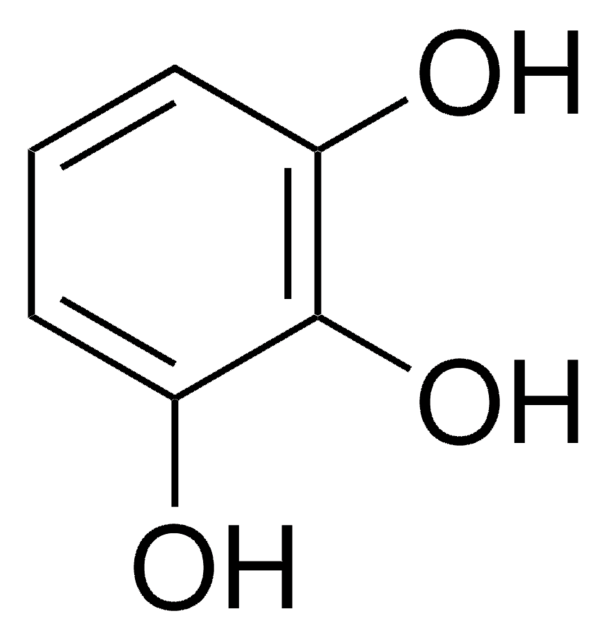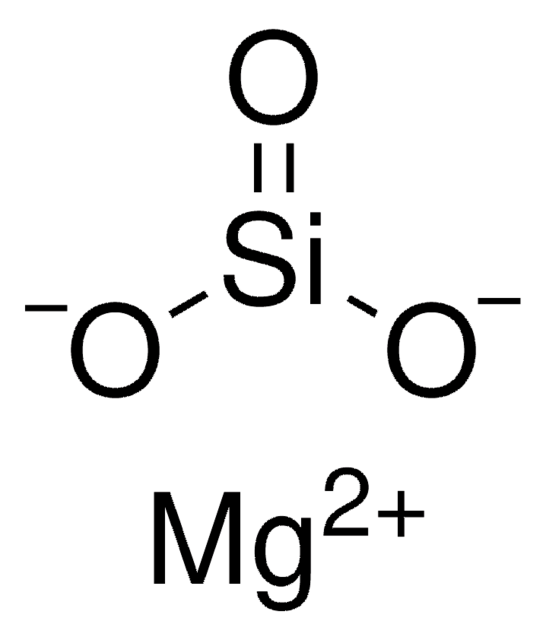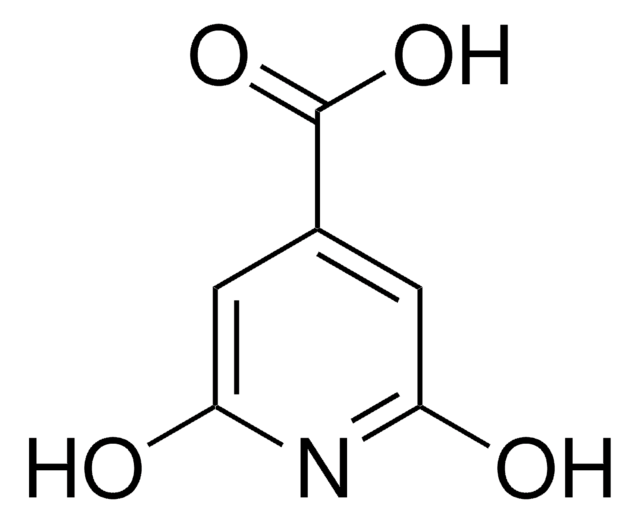16040
Pyrogallol
ACS reagent, ≥99%
Synonyme(s) :
1,2,3-Trihydroxybenzene, 2,3-Dihydroxyphenol, Pyrogallic acid
About This Item
Produits recommandés
Qualité
ACS reagent
Niveau de qualité
Densité de vapeur
4.4 (vs air)
Pression de vapeur
10 mmHg ( 167.7 °C)
Essai
≥99%
Forme
solid
Technique(s)
HPLC: suitable
Résidus de calcination
≤0.005% (as SO4)
pb
309 °C (lit.)
Pf
131.0-135.0 °C
133-134 °C (lit.)
Solubilité
water: soluble
Traces d'anions
chloride (Cl-): ≤10 mg/kg
sulfate (SO42-): ≤50 mg/kg
Traces de cations
Fe: ≤0.001%
heavy metals (as Pb): ≤0.0005%
Application(s)
pharmaceutical (small molecule)
Chaîne SMILES
Oc1cccc(O)c1O
InChI
1S/C6H6O3/c7-4-2-1-3-5(8)6(4)9/h1-3,7-9H
Clé InChI
WQGWDDDVZFFDIG-UHFFFAOYSA-N
Vous recherchez des produits similaires ? Visite Guide de comparaison des produits
Application
Actions biochimiques/physiologiques
Mention d'avertissement
Warning
Mentions de danger
Classification des risques
Acute Tox. 4 Dermal - Acute Tox. 4 Inhalation - Acute Tox. 4 Oral - Aquatic Chronic 3 - Muta. 2
Code de la classe de stockage
13 - Non Combustible Solids
Classe de danger pour l'eau (WGK)
WGK 2
Point d'éclair (°F)
Not applicable
Point d'éclair (°C)
Not applicable
Équipement de protection individuelle
dust mask type N95 (US), Eyeshields, Faceshields, Gloves, type P3 (EN 143) respirator cartridges
Faites votre choix parmi les versions les plus récentes :
Déjà en possession de ce produit ?
Retrouvez la documentation relative aux produits que vous avez récemment achetés dans la Bibliothèque de documents.
Les clients ont également consulté
Notre équipe de scientifiques dispose d'une expérience dans tous les secteurs de la recherche, notamment en sciences de la vie, science des matériaux, synthèse chimique, chromatographie, analyse et dans de nombreux autres domaines..
Contacter notre Service technique







